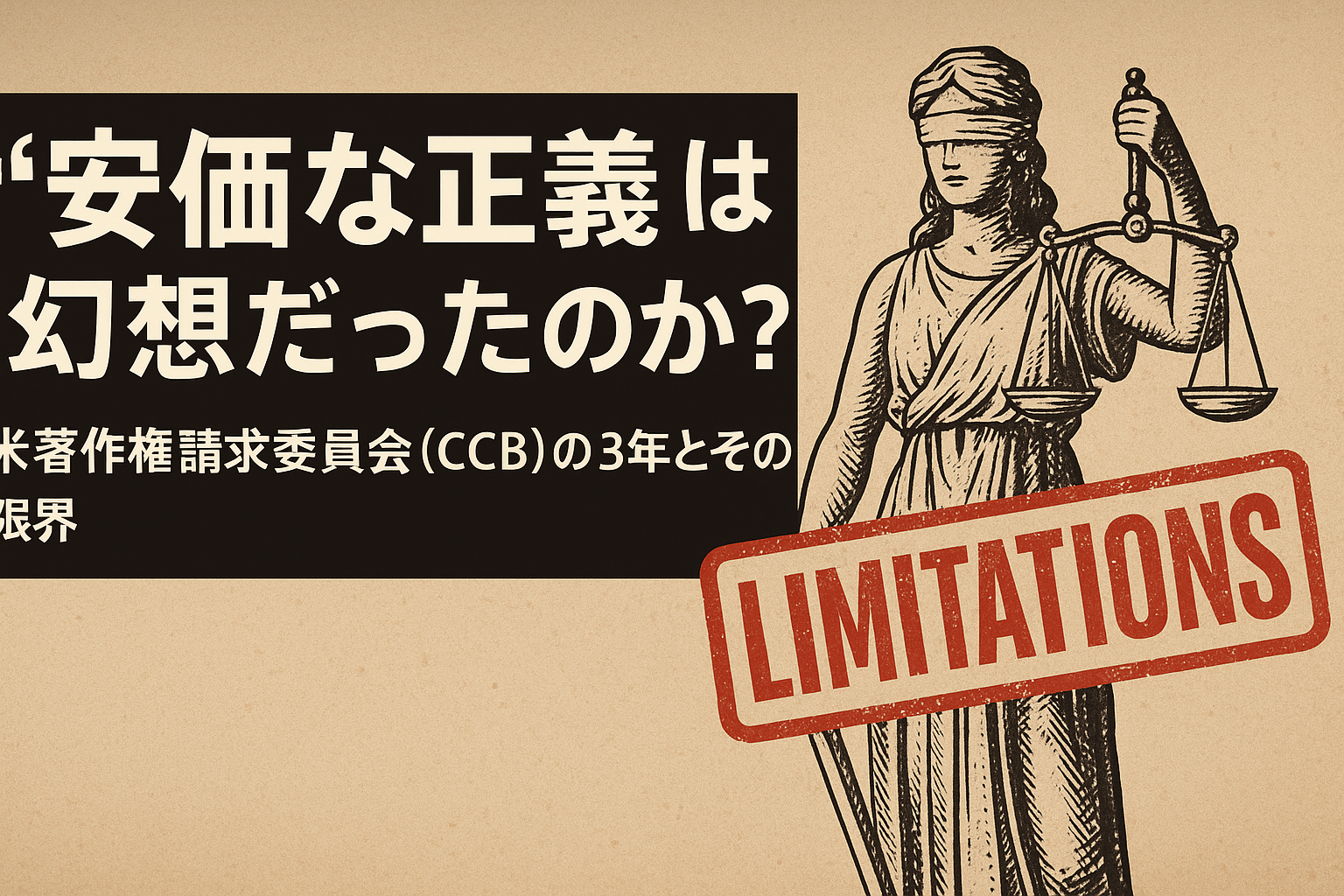In 2022, the U.S. Copyright Office launched the Copyright Claims Board (CCB), a groundbreaking mechanism aimed at resolving small-scale copyright disputes online without the need for attorneys. Hailed as a revolutionary system, it was seen as a beacon of justice for independent creators unable to afford high-cost litigation.
However, nearly three years since its implementation, the CCB is now facing harsh criticism.
Few Results, High Costs
According to reports, out of more than 1,200 claims submitted to the CCB, only 35 have resulted in final decisions. The total awarded damages amount to approximately $75,000, while operational costs have soared to $5.4 million. That equates to roughly $5,600 (about ¥780,000) per case—underscoring the system’s inefficiency.
Ironically, the CCB, originally designed as an alternative to prohibitively expensive litigation, has become a symbol of “high cost, low impact.”
Improper Claims and System Fatigue
Even more alarming is the system’s over 80% dismissal rate. Of particular note are the 470 dismissals due to “noncompliance” (errors or lack of response), revealing a pattern of low-quality filings and irresponsible use of the system. While the $40 application fee was intended to lower barriers to entry, it has arguably encouraged frivolous claims.
Critics point out that dedicated legal examiners are wasting valuable time reviewing cases that end up being abandoned, illustrating the strain on the system.
Default Judgments and Lack of Enforceability
Another concern: 60% of final decisions were default judgments—cases where the respondent failed to appear. Since CCB decisions lack the binding enforcement power of federal courts, claimants may be left without meaningful relief. What was supposed to be a streamlined and cost-effective procedure is instead becoming a venue where even basic engagement is difficult to secure.
The Gap Between Vision and Reality
The CCB was envisioned as a tool to protect ordinary creators whose copyrights were violated. Though founded on the principle of equitable access to legal remedies, it now risks becoming little more than a “complicated online bulletin board.”
For the system to succeed, structural reforms are essential: tighter pre-screening of claims, adjustments to fee structures to deter reckless filings, and legislative amendments to give CCB decisions real enforceability.
Ideals Alone Don’t Sustain Systems
A coalition of watchdog groups has called for restraint, arguing that the CCB should not expand its scope or authority until it proves its effectiveness. Ideals alone cannot sustain a legal system. Only with realistic institutional design and refined implementation can we ensure genuine access to justice.
The fight to protect copyright doesn’t end with system design. The past three years of the CCB have made that abundantly clear.

